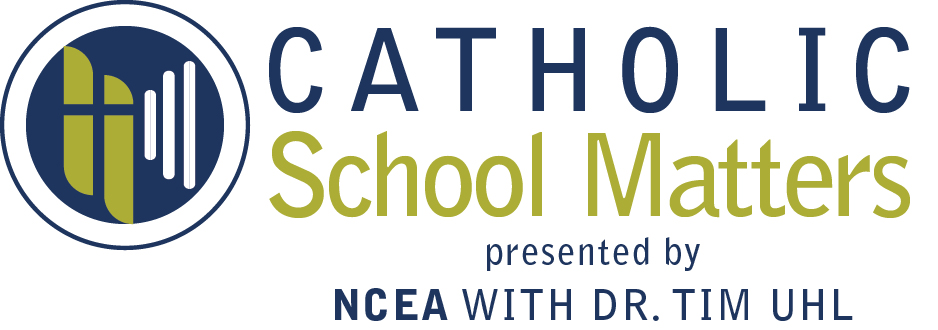In last week’s Catholic School Matters newsletter, I shared the article “Who Do You Say You Are: Relationships and Faith in Catholic Schools” from this fall’s Journal of Catholic Education. The authors (Jennifer Maney, Carrie King, and Thomas Kiely) examine the importance of teacher-student relationships within Catholic schools. They found that the quality of those relationships mirror the quality in public schools. For those of us who take pride in the community/family aspect of our Catholic schools, the findings were a little disappointing.
What are we doing to build relationships? Or, perhaps, what are we doing to increasing our teacher’s ability to relate to students (to quote Harry Kraemer in podcast #66)? After all, relating to students (or to teachers for principals or to principals for superintendents) is a teachable skill. Ronald Heiftetz and Marty Linsky in their seminal work Leadership on the Line distinguish between adaptable challenges (i.e. culture) and technical challenges. This is a only technical challenge for most of us.
First, consider what our customers (students, parents, teachers, principals) need. Dirk Deichmann and Roel van der Heijde in Harvard Business Review explore how figuring out what hospital patients need impacts how you communicate to them in “How Design Thinking is Improving Patient-Caregiver Conversations.” Their four categories (google patients, dominant patients, quiet patients, and emotional patients) have relevance to our schools and challenge us to design our communication accordingly. My guess is that many of us design our communications around how WE best receive them. And thus we try to build relationships the way we like!
Chip & Dan Heath in their 2017 book The Power of Moments explore how people can deepen ties by improving their expressions of understanding, validation, and caring. Are we teaching these skills? Are our teachers so afraid of crossing professional boundaries that they haven’t bothered to learn? I also wonder that as email and social media have shaped our methods of communication we might have forgotten to teach empathy and face-to-face communication. The authors explore the meaning of “What matters to you?” as an important question for understanding.
The Heaths also point to the work of Arthur Aron. He developed 36 questions to promote togetherness. Apparently these questions work to bring any two people together and I wonder if these questions couldn’t be used in faculty meetings as well as student activities such as journaling to promote the student-teacher relationship.
On a related note, this week the American bishops are meeting. I was reminded of the 1999 address by Cardinal George Basil Hume who asked how a bishop’s conference should behave in the midst of a divided church. His exploration of how the church should respond to division is worth the read. When he says, “Always be strict on principles but endlessly understanding of individuals,” I’m reminded of the value of a pastoral approach to divisive topics. We need more understanding! Isn’t that ultimately a question of relating effectively?
If we want our schools to be considered communities, then we need to be intentional about relationship development.
Want to keep up with the conversations surrounding Catholic education? Set up your own Google Alert, subscribe to this newsletter by clicking “follow,” subscribe to the Catholic Schools Daily, or subscribe to the Catholic School Matters podcast.
My Top 5:
I’m spending a week away from Montana getting my fill of Baltimore, DC, Pittsburgh, and South Bend. This will actually mark my last newsletter of November. I plan to take the next two weeks off to spend with family and catch up with some other projects. My top 5 this week:
- I blogged about developing relationships. I strongly recommend this article on design principles and communication. Although about patient-doctor conversations, it has takeaways for schools. I can’t get the article out of my mind.
- In the American Catholic News section, the first three articles focus on controversies swirling around Pope Francis. If you want to take a close look at the brouhaha, read these articles.
- The first article in the Leadership section “Stop Asking Your Employees This One Question” is fascinating because it’s a question I used to ask as a principal.
- The second article in the Leadership section is deep dive research piece in the National Bureau of Economic Research entitled “Long-term Trends in Private School Enrollment.” It’s a monster! But it’s full of great insights including the squeeze on middle class enrollees. It’s great to get the research in order to spark change.
- For teachers, the first article in the Teaching & Learning section is entitled “9 Mistakes That Sabotage Your Classroom Management.” This is the time of year when teachers need all the help they can get!
Have a great week! I’ll be back on December 3rd!
